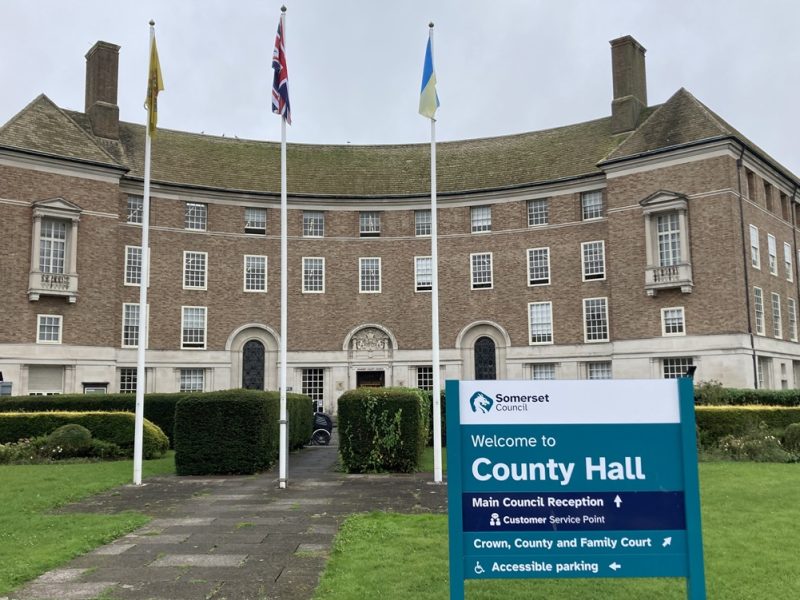SOMERSET Council’s Executive has set out a series of actions after declaring a financial emergency in response to soaring costs and demands on services.
Latest budget figures show Somerset Council is facing a funding gap of £100 million for 2024/25 due in large part to an expected increase of £70 million in the cost of adult social care for 2024/25.
Without immediate action this could lead to Somerset being forced to follow the likes of Birmingham and Woking councils by issuing a S114 notice – effectively declaring the council bankrupt.
Executive members on November 8 voted to declare a financial emergency and noted controls being put in place across the organisation to limit spending. They also agreed to dispose of commercial investments, and pledged to step up ongoing talks with the Department for Levelling Up, Housing and Communities.
Councillor Liz Leyshon, Somerset Council’s Lead Member for Resources & Performance and Deputy Leader, said: “It is clear we are one of the growing number of councils nationally to be facing a financial emergency. There is a fundamental structural problem with local government budgets as our costs are rising much faster than our ability to raise income.
“While we will continue to call for a national solution to this national problem, we are also determined to do everything we can to reduce our budget gap to ensure we continue to provide support for those most in need.”
Officers are drawing up savings proposals which will be voted on by Executive at its December meeting. These could include selling assets and buildings, including offices; increasing council tax, fees and charges as much as possible; reducing staffing levels; and reducing council services to statutory levels.
Meanwhile, council Leader Bill Revans has written to all city, town and parish councils in Somerset to ask them to consider taking on greater responsibility for local community assets and services. In his letter, Cllr Revans explains that although no decisions have been made, the financial emergency could impact on the delivery of local services in future.
The letter includes a list of potential assets and services which local councils may wish to support, and highlights ways they can do so.
This list includes everything from public toilets, theatres and libraries, to bus services, flood prevention measures, grass and hedge cutting, ditch clearing and drain jetting, fly tipping and carnival clear-ups.
Cllr Revans said: “We will need to review all our assets and services as we take action to address this financial emergency.
“Many city, town and parish councils have already expressed an interest in devolution and we recognise that some may wish to consider taking on community functions which could be at risk if we can no longer afford them.
“Transferring ownership and management of services at a local level, means communities can tailor them to meet the specific needs and preferences of their neighbourhoods. Local councils also have access to funding sources not available to the larger authorities.”
• Picture: Daniel Mumby, Local Democracy Reporting Service


